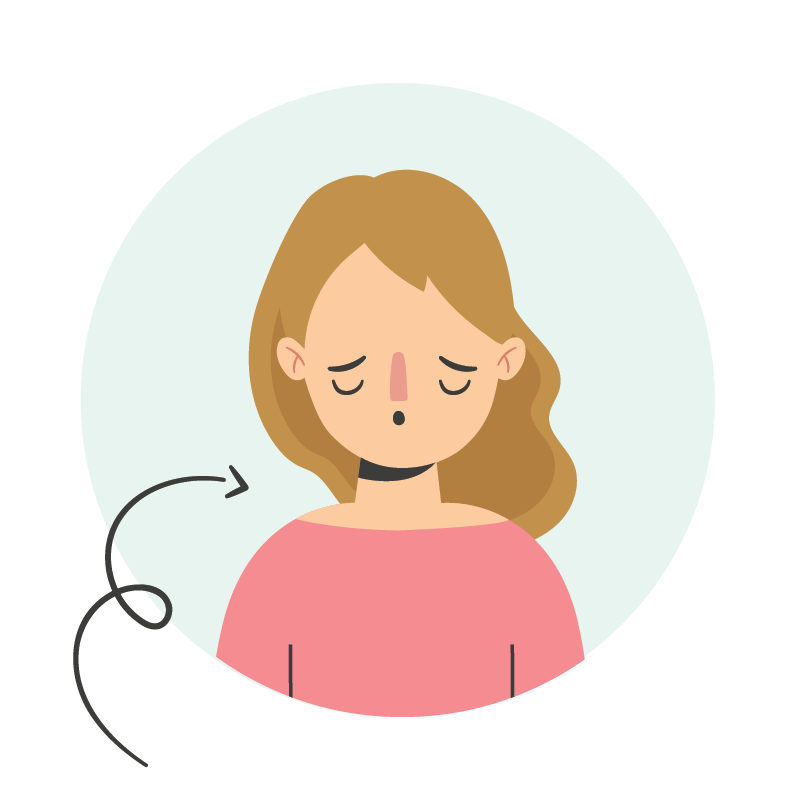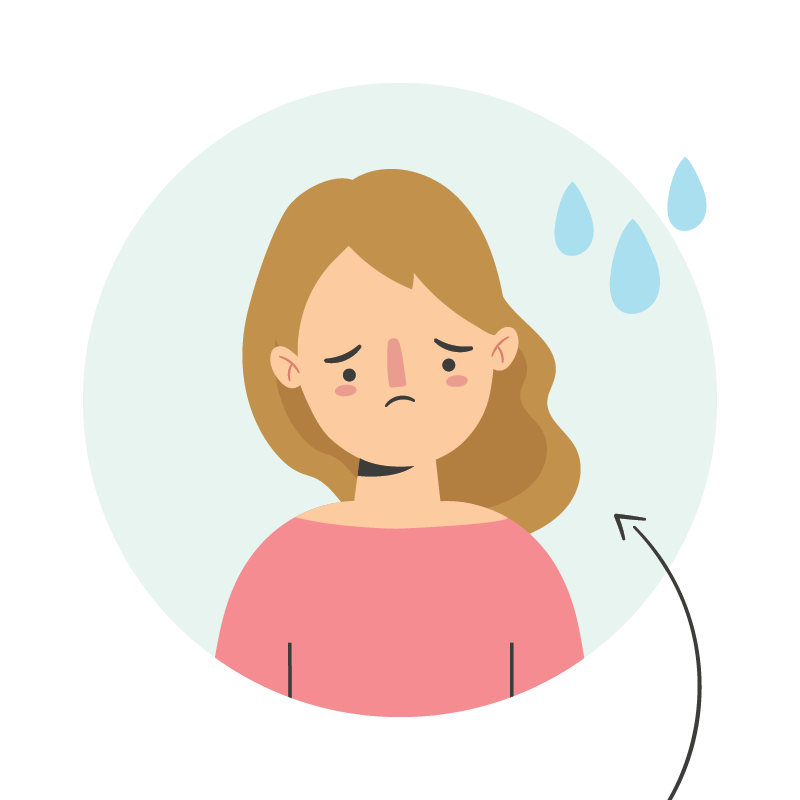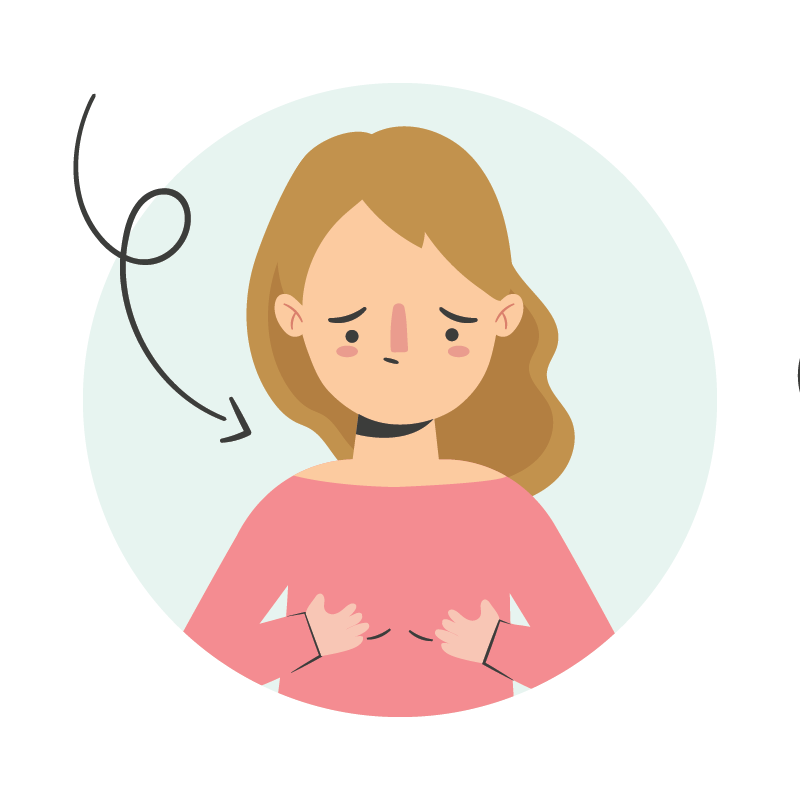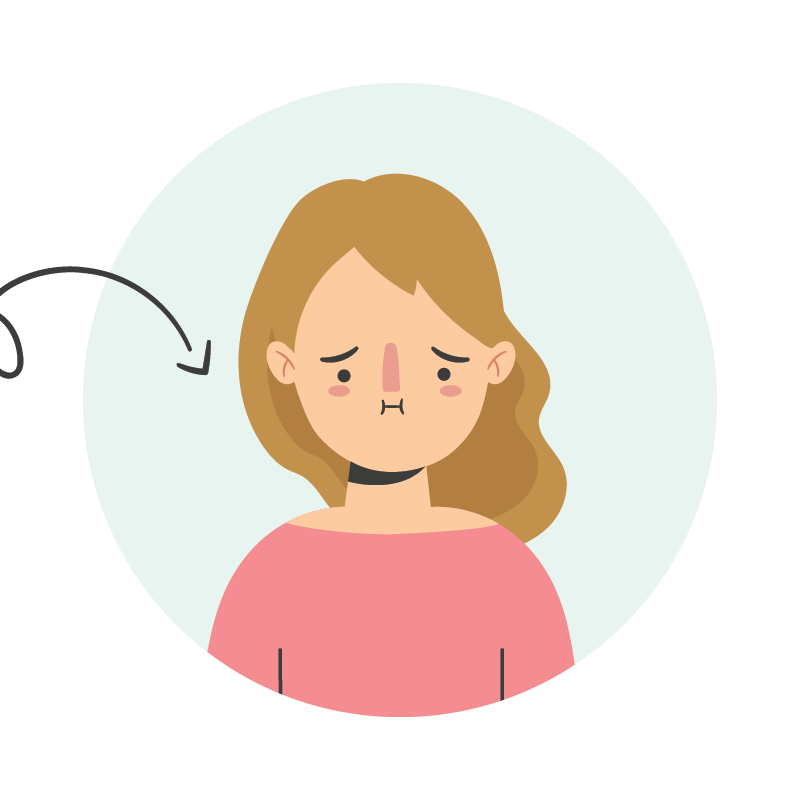पॉलीसिस्टिक ओवरी सिंड्रोम (पीसीओएस) क्या है?
पॉलीसिस्टिक ओवरी सिंड्रोम (पीसीओएस) एक आम नैदानिक स्थिति है जिसमें अंडाशय शरीर में एण्ड्रोजन (पुरुष हार्मोन) की असामान्य मात्रा का उत्पादन करते हैं।
पीसीओएस में, लगातार हार्मोनल असंतुलन अंडाशय के कार्य को बाधित करता है और अंडाशय में सिस्ट के गठन के लिए जिम्मेदार होता है, जो आगे चलकर अनियमित मासिक धर्म का कारण बनता है जो बांझपन का कारण बन सकता है।
What is Polycystic Ovary Syndrome (PCOS)?
Polycystic ovary syndrome (PCOS) is a common clinical condition in which ovaries produce abnormal amount of androgens (male hormones) in the body.
In PCOS, a constant hormonal imbalance impairs ovary function and is responsible for cysts formation in ovaries, which further lead to irregular menses that may cause infertility.
संकेत और लक्षण
पीसीओएस से पीड़ित महिलाओं में लक्षण अलग-अलग होते हैं और एक व्यक्ति के लिए, ये समय के साथ बदल सकते हैं। पीसीओएस से पीड़ित महिलाओं द्वारा अनुभव किए जाने वाले लक्षणों की श्रेणी में शामिल हैं:
- अनियमित मासिक धर्म (मासिक से कम या ज़्यादा)
- सिर के ऊपरी हिस्से पर अत्यधिक बाल उगना और बालों का झड़ना
- मुँहासे
- वजन बढ़ना
- गर्भवती होने में कठिनाई
- भावनात्मक परिवर्तन (अवसाद और/या चिंता)
- शुरुआती दौर में मधुमेह का जोखिम बढ़ना
- कम आत्मसम्मान
- शरीर की खराब छवि
- जीवन की गुणवत्ता पर असर
Signs and Symptoms
The symptoms vary among women with PCOS, and for an individual, these may change over time. The range of symptoms experienced by women with PCOS include:
- Irregular periods (more or less often than monthly)
- Excessive hair growth and Loss of hair on the top of the scalp
- Acne
- Weight gain
- Difficulties in getting pregnant
- Emotional changes (Depression and/ or anxiety)
- Increased risk of diabetes with early onset
- Low esteem
- Poor body image
- Impact on quality of life
कारण
पीसीओएस का सटीक कारण अभी भी अज्ञात है। हालाँकि, ऐसा माना जाता है कि पीसीओएस निम्न कारणों से हो सकता है:
Aetiology
The exact aetiology of PCOS is still unknown. However, it is believed that PCOS might be due to:
पीसीओएस की जटिलताएं
Complications of PCOS
पीसीओएस से कुछ जटिलताएँ विकसित हो सकती हैं, उनमें से कुछ इस प्रकार हैं
PCOS may develop certain complications, few of them are as follows:

बांझपन
Infertility

टाइप II मधुमेह
Type II diabetes

उच्च रक्तचाप
High Blood Pressure

गर्भाशय कैंसर
Uterine cancer
भावनात्मक स्वास्थ्य और पीसीओएस
पीसीओएस से पीड़ित महिलाओं में अवसाद, चिंता और मूड में अत्यधिक या तेज़ बदलाव होने का जोखिम भी अधिक होता है। अवसाद और चिंता के कारण उदासी और/या उन गतिविधियों में रुचि की कमी महसूस होती है, जिनका आप पहले आनंद लेते थे। यह कई तरह की भावनात्मक और शारीरिक समस्याओं को जन्म दे सकता है और एक महिला की अपनी दिनचर्या को भी पूरा करने की क्षमता को कम कर सकता है। सौभाग्य से, इसका इलाज भी संभव है। अवसाद के लक्षणों को पहचानना और समय रहते मदद लेना बहुत ज़रूरी है।

Emotional Health and PCOS
Women with PCOS also are at higher risk for depression, anxiety and extreme or rapid changes in mood. Depression and anxiety cause feelings of sadness and/or a loss of interest in activities that you once enjoyed. It can lead to a variety of emotional and physical problems and can reduce a woman’s ability to perform even her routine. Fortunately, it is also treatable. It is very important to recognise the signs of depression and seek help early.
आप क्या कर सकते हैं?
अच्छे सामाजिक समर्थन, पीसीओएस के बारे में शिक्षा और उचित उपचार से आपके भावनात्मक स्वास्थ्य में सुधार हो सकता है। आपके भावनात्मक दृष्टिकोण को बेहतर बनाने में एक स्वस्थ जीवनशैली भी बहुत महत्वपूर्ण है। नियमित गतिविधि से मस्तिष्क के रसायनों को बढ़ावा मिलता है जो भावनात्मक चुनौतियों के जोखिम को कम करने में मदद करते हैं। साथ ही, पीसीओएस से पीड़ित स्वास्थ्य पेशेवरों और अन्य महिलाओं का समर्थन प्राप्त करना बहुत महत्वपूर्ण है।
What can you do?
Your emotional health may be improved with good social support, education about PCOS and appropriate treatment. A healthy lifestyle is also very important in improving your emotional outlook. Regular activity has been shown to boost brain chemicals that help to reduce the risk of emotional challenges. Also, getting the support of a range of health professionals and other women with PCOS is very important.
पीसीओएस को नियंत्रित करने की रणनीतियाँ
समग्र स्वास्थ्य के लिए प्रारंभिक निदान और उपचार महत्वपूर्ण हैं। PCOS के लिए सबसे प्रभावी उपचार एक स्वस्थ जीवन शैली है। कुछ महिलाओं के लिए जीवनशैली के साथ-साथ दवा की भी आवश्यकता हो सकती है। PCOS से पीड़ित सभी महिलाओं के लिए एक स्वस्थ जीवन शैली महत्वपूर्ण है और PCOS के लक्षणों की गंभीरता को कम करने का सबसे अच्छा तरीका है।
एक स्वस्थ जीवन शैली में शामिल हैं:
- संतुलित, पौष्टिक आहार खाना
- जितना संभव हो सके उतना सक्रिय रहना
- लंबे समय तक न बैठना हर घंटे उठकर और टहलना और स्ट्रेच करना
- वजन पर नज़र रखना और किसी भी अतिरिक्त वजन बढ़ने से बचना, चाहे शुरुआती वजन कितना भी हो
- धूम्रपान और शराब के सेवन से बचना
- कोई भी ऐसा आहार नहीं है जो संतुलित, स्वस्थ आहार से बेहतर काम करता हो। संतुलित आहार सुनिश्चित करने के लिए विभिन्न प्रकार के खाद्य पदार्थ खाएं
Strategies to control PCOS
Early diagnosis and treatment are important for the overall health. The most effective treatment for PCOS is a healthy lifestyle. For some women lifestyle plus medication may be required. A healthy lifestyle is vital for all women with PCOS and is the best approach to reduce the severity of PCOS symptoms.
A healthy lifestyle includes:
- Eating a balanced, nutritional diet
- Being as active as possible
- Not sitting for long periods by getting up hourly to move and stretch
- Monitoring weight and avoiding any excess weight gain, no matter what the starting weight is
- Avoiding smoking and alcohol consumption
- There is no single diet that works better than a balanced, healthy diet. Eat a variety of foods to ensure a balanced diet
